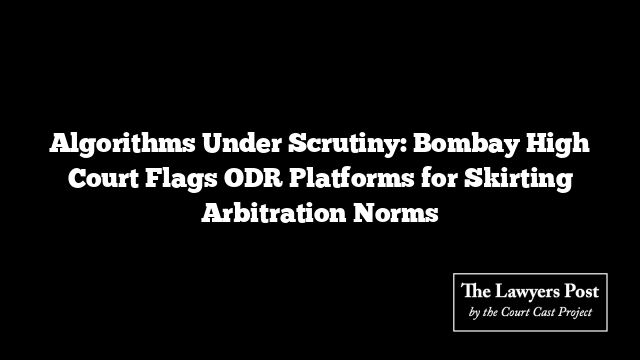In a move that may reshape how digital arbitration is conducted in India, the Bombay High Court has asked two online dispute resolution (ODR) platforms—Presolv360 and AdresNow—to open their algorithmic black boxes and explain how they ensure compliance with Indian arbitration laws, particularly the ban on unilateral appointment of arbitrators.
This judicial nudge came while the Court quashed an arbitral award in the case Radiance Galore v. Yes Bank, where the arbitrator had been appointed via an ODR platform—entirely at the behest of Yes Bank. Justice Somasekhar Sundaresan found the award to be legally flawed, citing a key principle: arbitrators cannot be appointed by just one party, even if a fancy algorithm or independent platform is doing the job.
“There are only two ways to legally appoint an arbitrator—mutual agreement or a court’s nod under Section 11 of the Arbitration Act,” the judge emphasized. While the platform’s selection method was algorithmic and randomized, the trigger came solely from one side—Yes Bank—violating Supreme Court precedent.
Interestingly, Yes Bank’s counsel told the Court they were backing out of the arbitration altogether—a move Justice Sundaresan noted was part of a pattern seen in similar cases involving banks and borrowers.
With the flawed award set aside by mutual agreement, the Court seized the moment to widen the conversation. It ordered formal notices to Presolv360 and AdresNow, asking them to clarify whether their platforms include checks to prevent appointments made without either party consent or court intervention.
The Court posed a fundamental question to the tech-driven dispute solvers: Have you coded your systems to respect the law?
The two platforms now have four weeks to respond. Until then, India’s digital justice experiments have been put on notice: automation doesn’t mean exemption.




